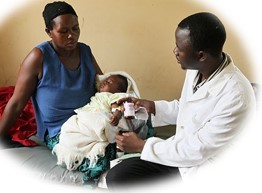Speeches Shim
BACKGROUND
Mozambique has made important progress in strengthening its pharmaceutical systems and improving access to life-saving medicines including antiretroviral therapy in recent years. A new medicines law, enacted by Parliament in 2017, created the National Directorate of Pharmacy (DNF), which is the National Medicines Regulatory Authority (NMRA). The number of people living with HIV receiving antiretroviral therapy (ART) has increased from the 308,000 in 2012 to approximately 914,000 in 2016, and new policies to strengthen the human resource capacity in the health sector, including shifting HIV care and treatment functions to clinical officers and nurses, were introduced. Still, there are still gaps in the DNF’s immediate capabilities and long-term regulatory planning.
PROGRAM DESCRIPTION
MTaPS works with partners in the pharmaceutical and health sectors to improve services so that pharmaceutical products are available, prescribed and dispensed appropriately and monitored for safety and efficacy. It provides technical resources to help the National Pharmacy directorate (DNF) develop regulations for licensing, inspection and clinical trials. MTaPS also focuses on strengthening DNF’s capabilities in registration processes for medicines and health products, pharmaceutical inspection processes, procedures for combating substandard and falsified medicines, clinical trials control, pharmacovigilance (PV), and post-market surveillance of medicines and health products. MTaPS will also continue to work with the Ministry of Health to update standard treatment protocols for diseases that threaten maternal and child health and update the country’s Essential Medicines List. MTaPS will develop a training on Pharmadex, a web-based tool that streamlines and track medicines registration.
EXPECTED RESULTS AND IMPACTS
- Improve speed and quality of medicines registration;
- Draft a Quality Management System (QMS) manual for standardizing operational regulatory processes of the DNF;
- Improve regional collaboration in medicines regulations; and
- Establish an active national surveillance system to monitor key new medicines especially HIV and TB related.


Comment
Make a general inquiry or suggest an improvement.